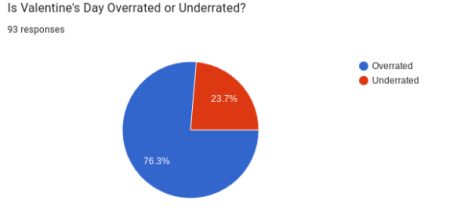Should Movie Theaters Come Back?
May 10, 2021
Movie theaters have been hit hard by the pandemic, and with the pandemic winding down, many are starting to ask whether or not theaters will make a comeback– and even if they should come back.
Since safety precautions to slow the spread of COVID-19 resulted in movie theaters closing their doors, most movie productions were pushed back or premiered on streaming platforms, such as live-action “Mulan” on Disney+ or Zach Snyder’s remake of “Justice League” on HBO Max.
As restrictions eased up and vaccinations rolled out, movie theaters began opening their doors again; that doesn’t mean people are going.
But once people feel safe to attend the theater again, they should. It is more profitable for obviously the theaters, but also the studios; most importantly, though, the experience of watching a film in theaters is far superior to the experience of home viewing.
First, though, let’s discuss the profitability argument.
Disney’s live-action remake of “Mulan” earned $70 million in the box office and an estimated $270 million from subscribers of Disney+ paying the premier access fee. After subtracting the $200 million production fee, we can estimate the film made about $140 million.
Now let’s compare that to Warner Bros.’s “Tenet,” which had a production budget of $200 million and earned $363.7 million in the box office. Overall, it made $163.7 million.
While “Mulan” had a very limited theatrical release and was mainly watched on Disney+, “Tenet” was mostly released in theaters. While “Tenet” seems to have made just a little bit more, it likely made less as most of Disney’s earnings went to the company while Warner Bros. had to pay theaters with some of these profits.
However, the profits* of both of these films pale in comparison to the 2019 live-action remake of Disney’s “Aladdin,” which had a production budget of $183 million and made $1.051 billion in the box office, resulting in a profit of about $868 million. While it is entirely true that movies are more profitable on streaming services currently, it cannot be understated just how much more profitable they were when movies were in theaters.
It is also true that most people prefer to watch movies at home currently, an opinion expressed by Alexia Szurminski, sophomore.
“I don’t mind them switching to premiering digitally because a lot of people are very homebody, and because of the pandemic still going on, it is an easy way for people to watch the movies at home with their family, and they also don’t have to spend money on movie tickets,” said Szurminski, who added, “I think for the time being it is a great idea, but I don’t think it should stay this way because many people love to get out of their houses.”
One myth about movie theaters and streaming, which is used to argue that movies should premier on streaming services is that streaming has been causing movie theaters to die out. This simply isn’t true.
In a graph showing U.S. movie theater revenue from 2010-2019 made by Statista with data from the U.S. Census Bureau, people can see the estimated revenue of theaters throughout the 2010s (click here to view the graph). While there are some years in which the numbers are down compared to the previous year, the overall profits are increasing for theaters rather than decreasing. After 2012, the revenue directly from admissions to films never goes below $9 billion and even reaches $10 billion at points.
While the future is not yet known, we can at least see that throughout the 2010s during the rise of streaming services, movie theater profits were not decreasing; they were rising. It’s also worth noting that out of the 10 highest grossing films of all time, eight are from the 2010s.
Therefore, while profits did decrease dramatically during 2020, this can be attributed to the pandemic and the restrictions of this time, and so, this decrease likely would not have been seen if there hadn’t been a pandemic.
With all that said, though, the biggest reason theaters should reopen is because the experience of watching a movie is simply better in them. The larger-than-life screen, the comfy chairs, the buttery popcorn, the giant cups of soda, the trailers for tons of movies, and most importantly, the audience watching with the viewer– all random strangers sharing the experience of watching the film together– can clearly not be created with streaming at home.
“The minute we declare the pandemic over, we must make the switch back to theaters as quickly as possible,” Aaron Anastos, junior, said. “Theaters are how movies were meant to be experienced— as just that, an experience. Nothing beats the magic of the big screen nor the memories we make there, and the devouring of theaters by the streaming giants is incredibly saddening.”
While the ads before the showing at theaters may be annoying, the trailers get viewers interested in films they might not have considered otherwise.
And although the limited timeframe of a film in theaters may feel constraining to some, it also gets viewers to stay focused on the movie rather than infinitely deciding it will just get watched later, which is easy to do with streaming options.
Getting to the theater may be a drive, but the total escape from life once there in the dark screening room is unmatched. Watching a film in theaters is a magical, totally immersive experience that cannot be lost forever because of a pandemic or the rise in streaming technology. Therefore, once it is safe, we must flock back to the theaters.
* Please note the writer could only find the box office earnings and production fees for every movie. The one key number he was unable to find for every movie was the advertising budgets, which typically can drastically change the overall profit. However, the writer still thinks the numbers given prove the point being made.
